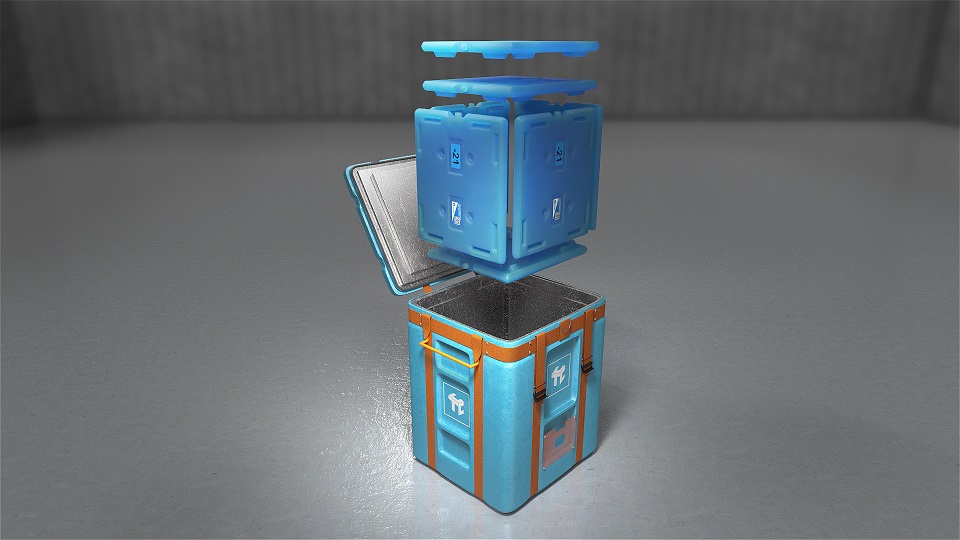A survey series by the Logistics Hall of Fame in cooperation with the logistics insurance broker Schunk Group looks at the current risks facing the logistics industry and how companies are preparing against them.
Logistics is a volatile business worldwide. More than ever, current trends and global political developments are creating new challenges and putting pressure on supply chains. But which risks are decisive and demand a rethink for the future? The first survey as part of a new survey series, which the Logistics Hall of Fame has initiated together with the Schunk Group, shows a clear result: The ongoing shortage of skilled workers, cybercrime and supply chain disruptions are currently causing the most problems for the logistics industry in the DACH region.
According to the respondents, the biggest risks currently confronting the logistics industry worldwide are the shortage of skilled workers (71.8%), followed by cybercrime (64.1%) and, in third place, supply chain disruptions (48.7%).
The picture is similar when it comes to the specific risks to the individual company. Here, the shortage of skilled workers also occupies first place in the individual risk ranking (62.5%). However, supply chain interruptions (47.5%) rank ahead of cybercrime (45%).
Political risks (43.6%) and climate change (18%) followed as general dangers, as did political risks (37.5%) when asked about their own companies. In contrast, business interruptions, the outbreak of a pandemic, market changes and loss of reputation played a lesser role.
“Topical issues such as supply chain problems and a shortage of skilled workers dominate the logistics risk ranking, but logistics executives have also realised that data-driven business models in logistics offer more and more gateways for cyber criminals to infiltrate logistics chains, reroute flows of goods or paralyse operations,” says Thomas Wicke, Managing Director of the Schunk Group.
“However, the fact that cyber attacks can become a problem for companies of all sizes is often forgotten or ignored. Even for small companies, damage in the millions can quickly occur. That’s why it’s important to be well protected against the effects of the risks.”
To fight the risks, the executives surveyed specified a number of ongoing measures, including early employee retention activities, comprehensive training programmes, work on top employer branding, and the formation of task forces to motivate in-house staff and recruit external forces, among others.
“Existing measures can be supported by suitable solutions that pay off in retaining employees and increasing employer attractiveness,” says Wicke, describing the possible approach. To protect against cybercrime, companies said they consciously invest in IT security, regularly hack themselves to detect security vulnerabilities, purchase monitoring systems, and secure processes and install regular backups.
The survey, which involves an executive C-level panel of selected managing directors, board members and entrepreneurs from the Logistics Hall of Fame network and the Schunk Group, will be conducted quarterly in the future on changing topics.
Interested parties can be added to the distribution list by sending an e-mail to stefanie.nonnenmann@impact.mp. The survey shows the current mood in the logistics industry and is not representative of the industry as a whole.
Background: The Logistics Hall of Fame was founded in 2003 and honours leading figures who have made outstanding efforts to promote the further development of logistics and supply chain management. This eternal pantheon is also designed to remind future generations of the achievements of these individuals in the service of logistics. The aim of the Logistics Hall of Fame is to act as a worldwide platform to publicise the performance capability of logistics and its importance for society. The Logistics Hall of Fame also presents the TRATON Logistics Leader of the Year Award to current pacesetters in logistics. It is sponsored by TRATON SE.
In addition, the Logistics Hall of Fame recognises innovative logistics projects by humanitarian organisations with the Lynn C. Fritz Medal for Excellence in Humanitarian Logistics. The donor is the Fritz Institute. The Logistics Hall of Fame is a non-profit initiative supported by the world of politics, associations, the logistics industry and logistics science. The patron is Dr. Volker Wissing, German Federal Minister for Digital and Transport.







